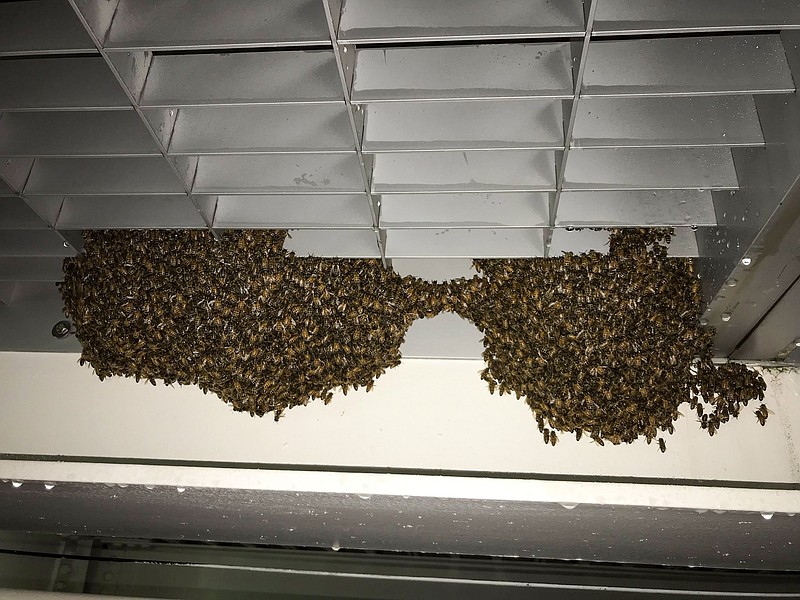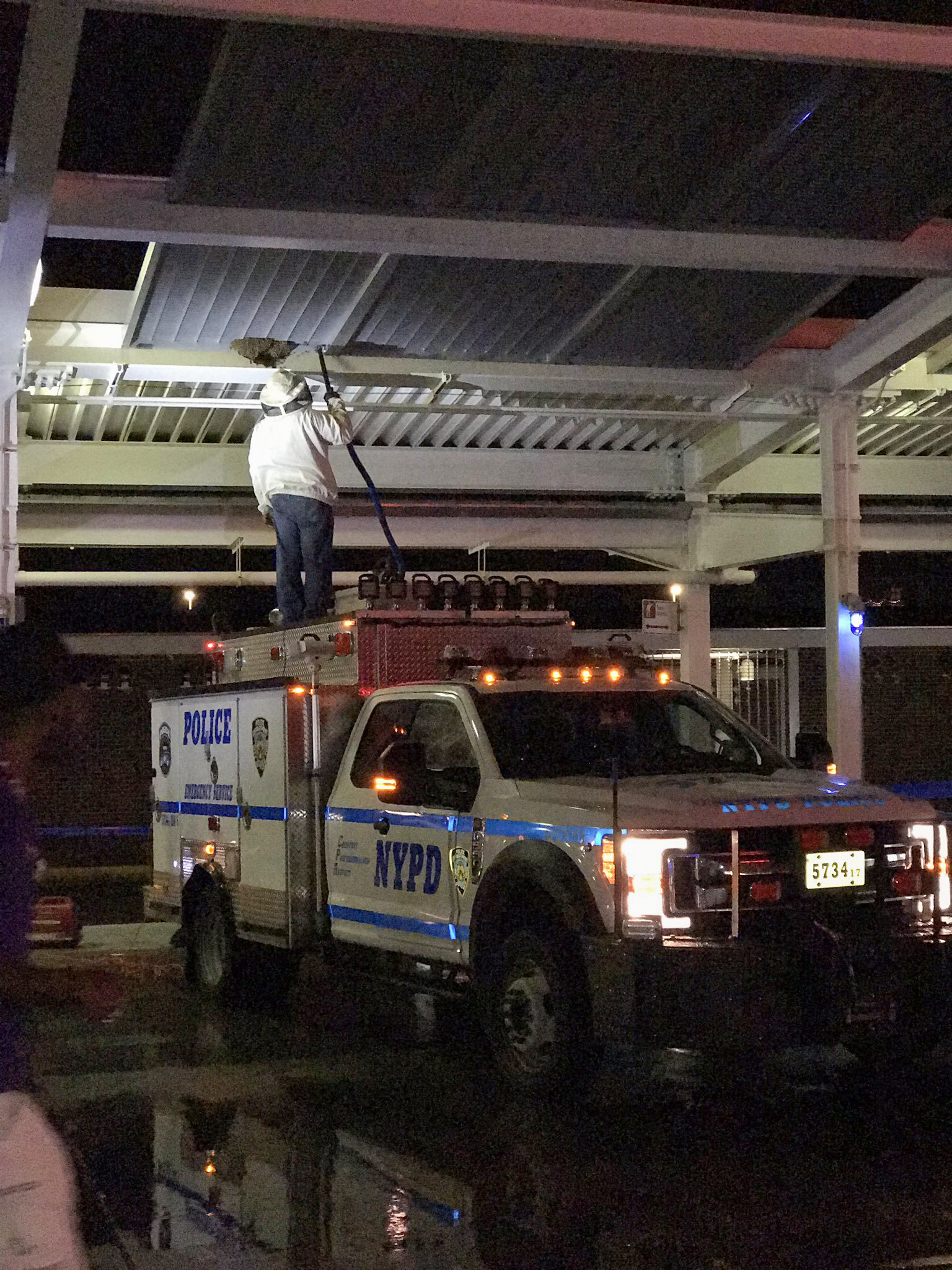NEW YORK - The St. George Ferry Terminal on Staten Island was swarming with perpetrators. They surrendered without incident. All, that is, except for one.
"I actually got stung," Officer Darren Mays said Monday. "It happens. There's a lot of people amazed. There's a lot of people who are like, 'I could never do something like that,' and commended me for being brave."
Mays is a member of the New York Police Department's beekeeping unit. And Sunday afternoon, the unit got a call from a police lieutenant with ferry security that about 25,000 honeybees were clinging to a metal awning at the terminal. The area was cordoned off with yellow police tape, as skittish passengers kept their distance from the colony. A few curious individuals dared to come closer.
This was a job not for the faint of heart, but rather for the bee team, which, apart from the one sting, safely removed the bees by nightfall. The special unit is made up of two officers and sometimes a third with beekeeping expertise. It has its own Twitter account.
Mays, 48, said he had been stung three to four times out of the 30-40 times he had helped relocate a swarm. He wore protective netting and a white beekeeping suit top Sunday while sucking up the bees with a Colorado Bee Vac, which has a hose connected to a hivelike box.
The officer, who works out of the 104th Precinct in the Ridgewood section of Queens, said he can tell roughly how many bees are in a swarm by the weight.
"Three pounds of bees is usually about 10,000," he said. In this case, 8 pounds of bees took 30 minutes to vacuum up, according to the officer.
Mays said he was not aware of any previous bee-related calls at the ferry terminal, and added that there was a simple explanation for why the bees swarmed to the metal awning.
"The queens pick a spot," he said. "So they all ended up staying there."
The ferry is operated by the New York City Department of Transportation, which did not immediately comment Monday evening.
Mays said he had been beekeeping for about 11 years, and initially scoffed at it as a pastime.
"I made fun of a friend who was doing it," he said. "After watching them for about an hour, it kind of sucked me in. My wife surprised me with a kit for Christmas."
There is a high level of curiosity and bravado associated with the Police Department's bee team, which has responded to a number of high-profile calls over the years. In July, officers responded to Yankee Stadium, where a swarm of bees occupied Monument Park in center field.
"There was another beekeeper who beat us to the punch," Mays said.
After taking the honeybees into custody Sunday night, Mays drove them over the Verrazzano-Narrows Bridge, along the Brooklyn-Queens Expressway and back to his precinct station house, where there is a beehive on the roof.
So what should New Yorkers do if they encounter a swarm?
"Don't spray them," he said. "Don't do anything. It's a 911 call and not a 311 call."
Several hours after responding to the St. George Ferry Terminal, Mays was called at 1 a.m. Monday to an apartment building in the Bronx. A swarm of bees clung to the building's facade several stories up.
He deemed that this sting operation was too risky, however. So for the time being, he let it be.
"I let them stay," he said. "It was too dangerous to retrieve them."

